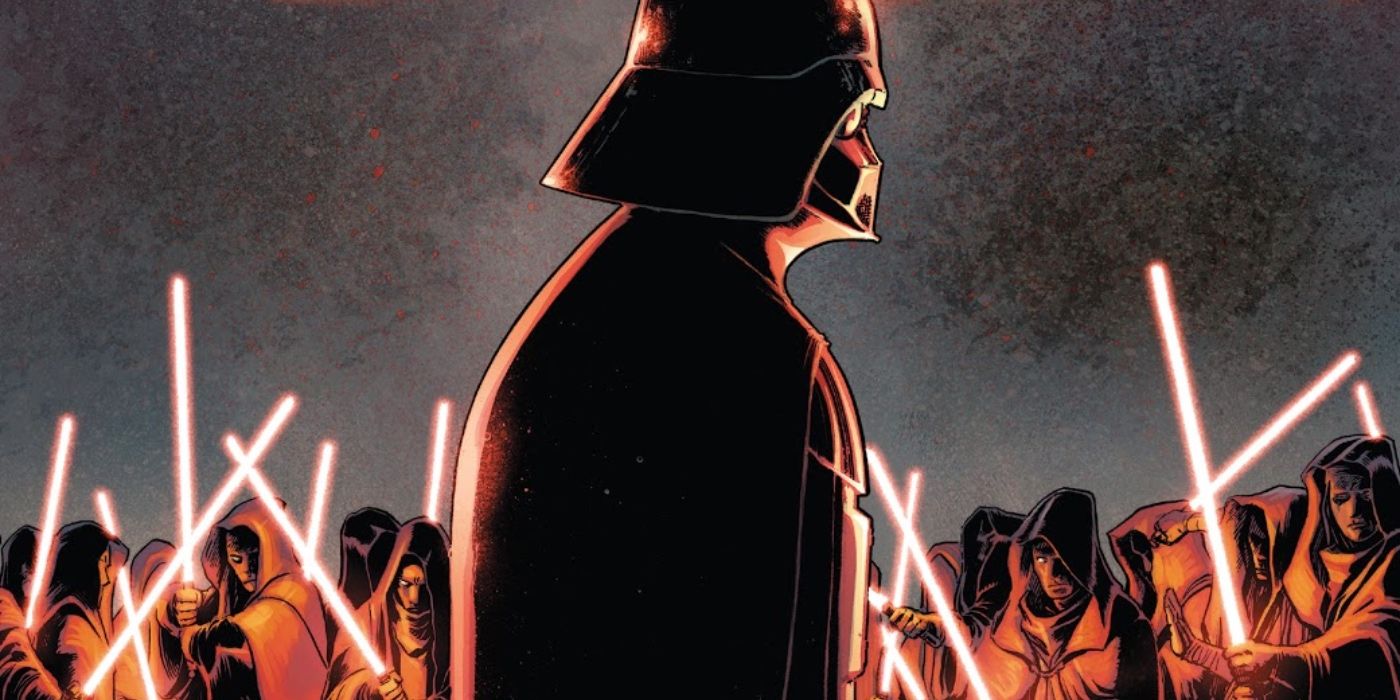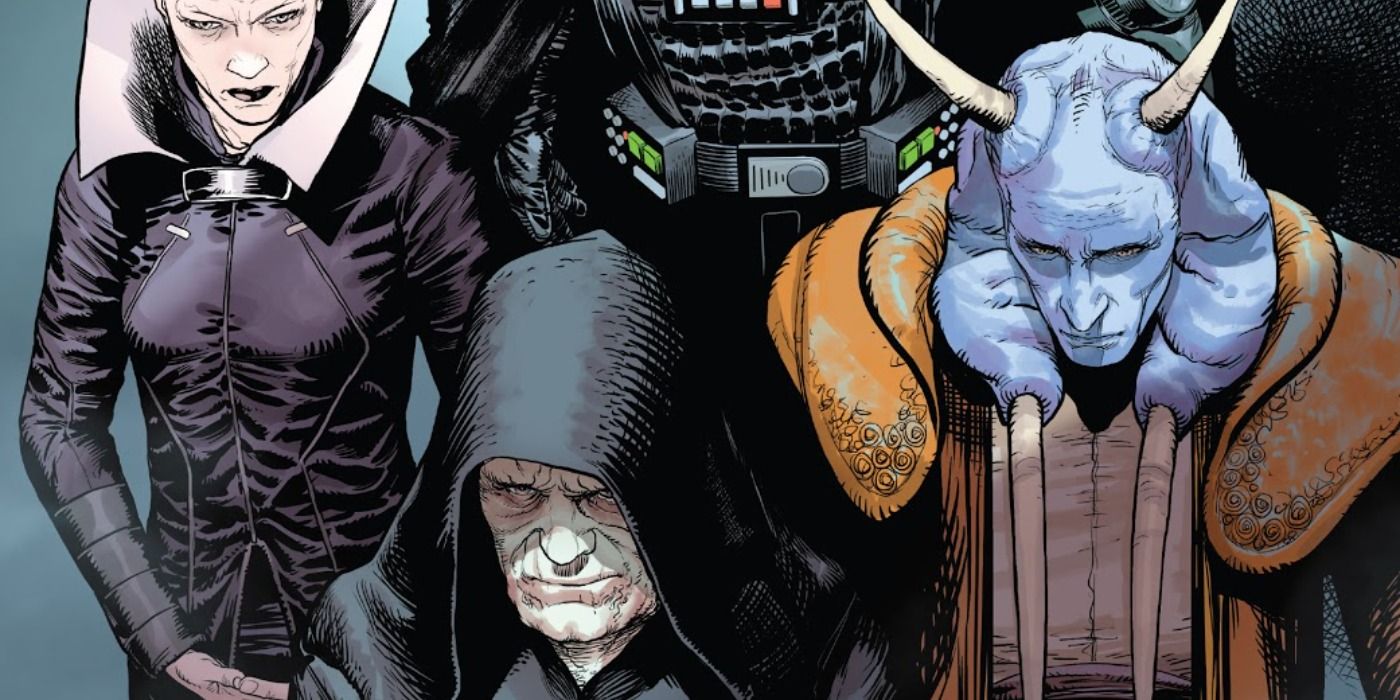This article contains spoilers for Darth Vader #11.
Star Wars has just created another sequel trilogy plot hole, centered on the Sith planet of Exegol introduced in Star Wars: The Rise of Skywalker. As the final chapter in the Star Wars sequel trilogy, Star Wars: The Rise of Skywalker attempted to tie up every possible loose end. Unfortunately, it was frankly a little too ambitious. The film introduced a number of new elements into Star Wars lore, and subsequent tie-ins have been trying to integrate these concepts and ideas – with mixed success.
Take, for example, the Sith redoubt of Exegol. Situated in the depths of the Unknown Regions, Exegol was the home of a secret cult known as the Sith Eternal. It was Palpatine's last stronghold, the place where he had been constructing a devastating fleet of Imperial Star Destroyers armed with weapons that could destroy entire planets. Naturally, even the Emperor could not have handled such a sophisticated construction project without someone knowing about it. But which of Palpatine's senior advisers were in the loop about Exegol?
Marvel's current Darth Vader run, by writer Greg Pak and artist Raffaele Ienco, has been attempting to tie up some of the various problems with Exegol. The story has seen Darth Vader discover the existence of Exegol, and learn of the superweapons being constructed there. Darth Vader #11 ends with Vader agreeing to continue serving the Emperor as his apprentice, and a final panel shows some of the other senior Imperials on Exegol, confirming Palpatine's closest advisers knew about the Final Order. Surprisingly, one of them is a senior adviser to Palpatine named Mas Amedda – and this appears to be something of a continuity problem.
The problem is that, after the Emperor's death in Return of the Jedi, Mas Amedda appeared to resign himself to the Empire's defeat. According to Chuck Wendig's Aftermath trilogy, he took command of the imperial capital of Coruscant, and isolated himself from the other Imperial forces who obeyed Palpatine's last command – to initiate Operation Cinder, a scorched earth policy that involved committing acts of genocide across the galaxy. In fact, it was Mas Amedda who ultimately betrayed the Empire by signing a peace treaty with the New Republic. The Aftermath trilogy included enough scenes with Mas Amedda to be confident he believed the Empire had fallen. This really doesn't match up with the idea of his knowing of a secret fleet of superweapons secreted in the depths of the Unknown Regions.
Lucasfilm has a strange relationship with the Aftermath trilogy. Several stories have been set around it, and indeed have expanded upon it; prominent examples include the story mode of Star Wars: Battlefront II and Alexander Freed's Alphabet Squadron trilogy. Even The Mandalorian drew upon ideas established in Wendig's trilogy, notably the character of Cobb Vanth. And yet, for all that is the case, The Mandalorian rewrote Cobb Vanth's backstory, and Greg Pak's Darth Vader run just doesn't seem to connect particularly well with Wendig's books. It really does seem as though Lucasfilm is taking what they want, and freely contradicting anything they don't. Such an approach runs completely counter to the promise of the Disney era, that there are no longer any "levels" of canonicity in this franchise, but rather that everything counts to the same degree. Star Wars seems to be entering a state of flux once again.


